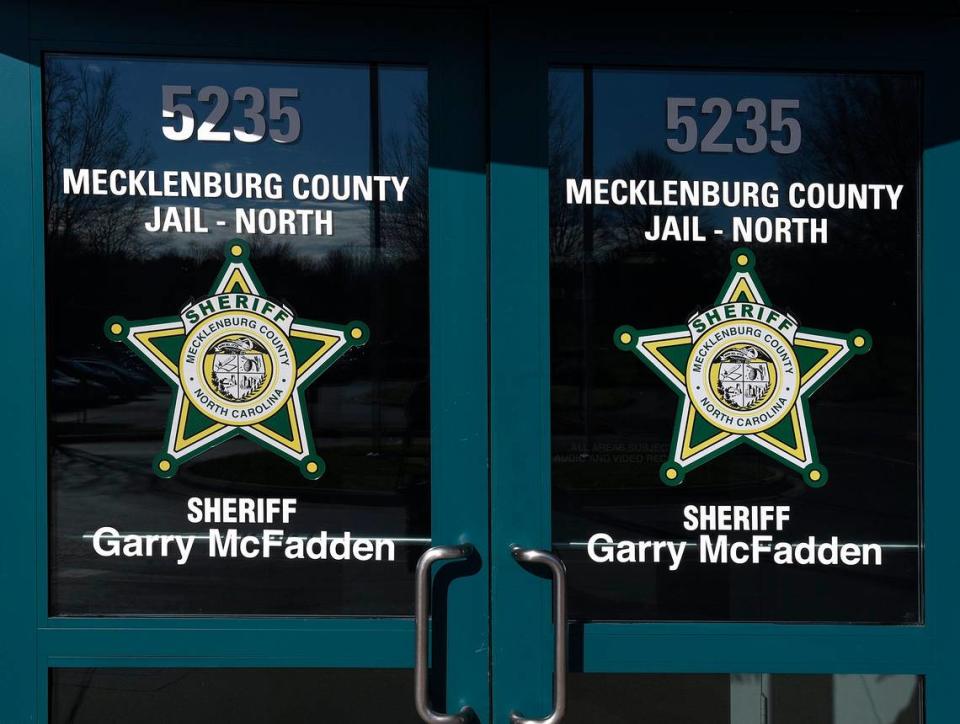Meck jail relocating some juveniles to help staffing shortages, Sheriff’s Office says
Mecklenburg County will relocate some juvenile detainees to other counties to help with jail staffing shortages, the Sheriff’s Office announced on Thursday.
The 23 juveniles currently face criminal charges outside of Mecklenburg, according to the Sheriff’s Office, which is working with the N.C. Department of Public Safety. Details about the charges and destinations for the juveniles were not provided.

The relocation is expected to decrease the population at the Juvenile Detention Center in north Charlotte by a third, the Sheriff’s Office said.
The decision to relocate the juveniles is a “good idea” to one community activist in Charlotte, but an exacerbation of unhealthy treatment to another activist.
Most of the juveniles will be moved to facilities in the Piedmont area, Sheriff’s Office spokeswoman Janet Parker told the Observer. The Sheriff’s Office will house some of the older juveniles who are facing adult charges in a facility in the eastern part of the state that “can better meet their specific educational and vocational needs,” she said.
“For some of these juveniles, this facility will actually be closer to their home county than Mecklenburg County was,” Parker said.
Parents and guardians will be contacted before their juvenile is moved and upon safe arrival at the new facility, Parker said. The Sheriff’s Office allows for virtual visitations if parents cannot drive to the facilities in person, and all juveniles will be allowed to talk to their parents upon arriving at their new facility, she said.
‘Temporary relief’ at jail
The move also would allow the Sheriff’s Office to move 29 officers to the Mecklenburg jail in uptown, where there is a “dire staffing need” due to vacancies, training, COVID-19 and family medical leave.
Mandatory overtime and resources from other areas have helped alleviate staffing shortages at the jail, Sheriff Garry McFadden said in a news release. Because “trials have been delayed,” some inmates have remained in the facility longer than anticipated, he said.
“While this is not a permanent solution, it will provide temporary relief and resources where they are currently needed most,” McFadden said of the relocation.
Most juvenile detention facilities in the North Carolina are facing higher-than-normal staff vacancy rates, Parker said. The state operates most of these facilities, but Mecklenburg’s county partners are assisting where possible, she said.
There are currently 141 vacancies at the Mecklenburg jail uptown, Parker said. There are 470 total positions at the jail, she said.
As of Dec. 1, there are no COVID cases among inmates at the jail in uptown or at the juvenile detention center, Parker said. Just one staff member at the uptown jail is out with COVID-19, she said.
‘Children need to be free’
One local community activist criticized the decision to relocate the juveniles.
Children should be at home with their parents and families, and not inside cages, Charlotte activist Kristie Puckett-Williams told the Observer on Thursday. Instead of moving them, the jail should be providing resources to understand their trauma, she said.
“If 23 children cannot be safely maintained inside of Mecklenburg County jail, then those children should be at home with their parents,” she said.
Moving children away from Mecklenburg, particularly if they’re from the area, could disconnect them from their families, Puckett-Williams said.
“The mental health conditions of children are already altered and fragile as a result of being incarcerated and separated,” she said. “We have to be concerned about their connectivity to their family and their natural support.”
The Juvenile Detention Center houses juveniles ages 15 to 17, according to the Sheriff’s Office website.
While Puckett-Williams opposes the relocation, another activist says the move will be beneficial to the troubled youth.
Moving the juveniles is a “good idea,” said Robert Dawkins, a state organizer for Safe Coalition NC. Now other counties will have “to take (back) their kids” that are awaiting court dates at the detention center, he said.
“The counties don’t even try to come pick up the kids,” Dawkins said. “They try to avoid it and put it on the Sheriff’s Office.”
Dawkins said the relocation will help with the jail staffing shortages, but Puckett-Williams isn’t as convinced. There’s a cultural shift happening in the jail, so the only way to alleviate the shortages is to not move people around, but to free people and decarcerate, she said.
“If you don’t have enough staff to maintain a safe jail, then let some of those people go, rather then over-exacerbating another facility or the relationship between an incarcerated person and their community,” Puckett-Williams said. “Children need to be free.”

